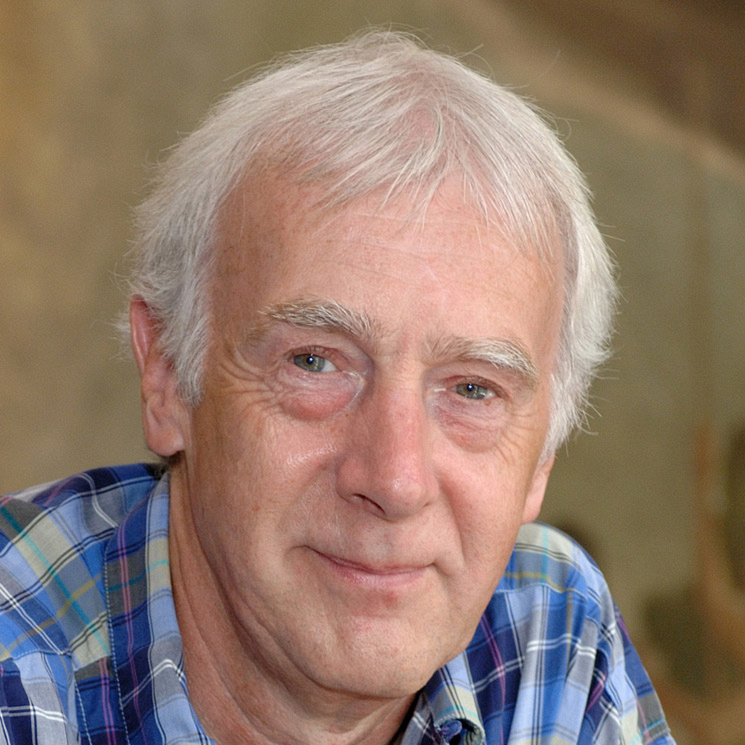None in Three Newsletter Issue #5
January 2021

January 2021
None in Three (Ni3) is a global research centre for the prevention of gender-based violence (GBV).
The name None in Three comes from the statistic that one in three women around the world will experience some form of physical or sexual violence in their lifetime. We believe this is an unacceptable number; that any violence against women and girls is not OK, and we work to make that number NONE in three.
GBV is the term used to describe harm inflicted upon people that is connected to how their gender is understood within their culture. We research different forms of GBV and are developing interactive computer games as educational tools for young people, to be played in schools.
Through these games we aim to effect meaningful cultural change. We work to change attitudes and behaviours that relate to different types of GBV, including sexual abuse; adolescent dating violence; gender bias and its relationship to gender-based violence; and child marriage.
We are passionate about making a difference. Through our work we are striving to change the behaviours and attitudes not only of individuals, but of governments too.
We seek to achieve real-world impact through our research. We want to persuade governments to listen to the facts about GBV, to accept the extent of the problem, to acknowledge how many women and girls are being abused, and to act in order to change this.
We welcome the support of like-minded organisations who share our commitment to preventing violence against women and girls.
If you would like your organisation to be listed on our website as a supporter of None in Three, please click here to complete a short online form registering your interest.
You can also get in touch by email on
noneinthree@hud.ac.uk
Hello, and welcome to the January 2021 None in Three newsletter. In this edition we will be looking into the qualitative research we have completed at the Centre across our four GCRF study countries. We also celebrate the commencement this month of our newest project, Ni3 Emilio, funded by UNICEF’s End Violence Against Children Fund. More details below.
The findings of our qualitative research on the GCRF Ni3 project represent a major effort involving over 200 research participants and experts working across health, social sciences and humanities disciplines to uncover the experiences of gender-based violence in different settings, and to seek ways to end it. Each country, in consultation with NGOs and professionals working with survivors, examined types of GBV of particular relevance to their local context:
The executive summaries of this work, which have now been published (see links below), show that the roots of GBV run deep, and there is much to do in order to eradicate the problem. The work carried out by our colleagues was incredibly diverse and specific to each country, but at the risk of simplifying this rich body of work, it was notable that some common drivers of GBV exist across national borders: poverty, a lack of educational opportunities for girls, bias against women, and the existence of violence and crime within the wider community. It is our hope that, by intervening in educational settings, the work of the None in Three Centre will help to drive the social changes that are needed to realise our hopes of a GBV-free world.
Tim Gomersall & Graham Gibbs, Ni3 Ni3 GCRF Project Qualitative Research Leads


Research Fellows in our four GCRF project study countries have recorded a short videos in which they reflect on the key themes and findings of another country team’s research. We are pleased to share these videos with you below.
Karyl Powell-Booth, our research fellow from Jamaica, shares her thoughts on our India team’s research into gender bias in Indian society.
Gill Kirkman, our UK country director, shares her thoughts on our Jamaica team’s research into child sexual abuse in Jamaica.
Rukmini Banerjee, our research fellow from India, shares her thoughts on our Uganda team’s research into the impact of child marriage.
Dr Esther Nanfuka, our Research Fellow from Uganda, shares her thoughts on our UK team’s research into intimate partner violence.
By Gill Kirkman, UK Country Director
When considering Jamaica’s response to Child Sexual Abuse (CSA), I find many similarities to those here in the UK. The subject is, as researchers confirmed, a secret taboo, one covered in shame and blame supported by a system set up to pour scepticism and doubt upon the victim. The summary takes the reader methodically through survivor experiences of abuse and the subsequent long-term impact set within a recognition of the cultural perceptions that normalise the sexualisation of children. The summary provides a profound insight into the trauma experienced by those young people who bravely disclosed their abuse. Evidence on the impact and adverse outcomes for both male and female victims is highlighted, and researchers analyse the similarities and the important differences in gender responses, essential to understand if effective interventions are to be developed. Sexual abuse is viewed by male participants in the study as a ‘rite of passage’; this provides a powerful and painful insight into the country’s cultural and social norms that do little to protect children from abuse. The evidence is robust and highlights the lack of preventative strategies and therapeutic support, leaving potential victims extremely vulnerable and survivors bereft of therapeutic help.
The authors state that legislation is not enough; the data reveals that, despite laws being in place to protect victims, they require proactive professionals to ensure they are enforced. The research clearly evidences that victims of CSA do not receive justice and that current responses are no deterrent to those who perpetrate it. Evidence-based recommendations are offered, providing an important resource for the judiciary, professionals, policy makers, and politicians. Courts need to become child focused, and victim centred, enabling different methods for providing testimony, rejecting current myths of victim falsehood and enabling child friendly courtrooms. Revictimisation must be avoided and researchers advocate for measures to be put in place that build more empathy and protect children from further contact with perpetrators.
It is clear from the data that effective perpetrator programmes are indispensable. Offence focused treatments that are also trauma informed are recommended, as is trauma informed practice with survivors to promote resilience and a future free from further abuse. Education plays a significant role across many of the recommendations: for frontline staff who have a responsibility for the welfare and protection of children; for parents, who can offer increased support; for the media; and the general public. The training of medical professionals is also recommended so that sexual trauma can be identified using screening tools. This is an important consideration, but has to be measured against our understanding that not all children who are sexually abused show signs of intimate trauma, thus placing the onus back onto adults to believe children when they disclose and be vigilant to changes in attitude and behaviour. The myth that children lie about being abused needs to be robustly challenged.
It was found that some young people utilised positive coping strategies after the abuse and this was encouraging to see, however researchers state that this was piecemeal and in the absence of any formal interventions or support. Ensuring that appropriate support and guidance is available at every point for victims of sexual abuse will be crucial going forward, offering children and young people hope that the abuse need not define them, that a resilient and positive future is within reach. Uncomfortable conversations must be had, the silence must be broken, and this summary will hopefully start that process.
This research has allowed us to gain a deeper understanding of the reality of gender-based violence in each of our study countries. While it remains true that abuse can be best understood and addressed by studying it within the culture in which it occurs, our research still revealed some common patterns of GBV that remain true across all of our study countries.
This video summarises some of the themes within our research.
We are already using our research findings to push for change in each of our study countries. Dr Agata Debowska, who leads the Ni3 Policy Hub, has provided a brief update on steps we are taking in the UK to ensure our research leads to real change for women and girls.
We are currently working on a policy brief for the UK. In the UK, there is a tension to better protect women and girls who experience abuse, including abuse experienced at home and in dating relationships. To contribute towards this change, the UK policy brief will use some of the quantitative and qualitative data to describe how and when girls and women experience abuse. In addition, we will focus on girls’ acceptance of dating violence. In this policy brief, we will also include some recommendations for action.

You can read each of our four countries’ executive summaries on the links below. Forewords for these reports were provided by members of our International Advisory Group, extracts from which indicate some of their reflections on the work, below.
The Role of Gender Bias in Gender-based Violence – Our India Executive Summary
The coronavirus pandemic and consequent lockdown has once again shown that women are still not safe in their homes. While there seems to be more of a discussion on GBV, there is still a lack of adequate response by State and society. There can be no better time for preventive interventions such as the Ni3 initiative. The findings of their research reinforce the need to positively influence adolescents to not only understand, but recognise gender bias in our everyday life. Working with children to teach them to recognise and understand not just violence but every day bias that results in such violence, would go a long way in moving towards a GBV free society.
Advocate Veena Gowda
Ni3 International Advisory Group member
Women’s Rights Lawyer
From the foreword to ‘The Role of Gender Bias in Gender-based Violence‘
“It Affects You For a Lifetime”! Perspectives on Child Sexual Abuse in Jamaica – Our Jamaica Executive Summary
The problem of Child Sexual Abuse (CSA) in Jamaica is intractable […] This research report adds unique insights to the existing store of knowledge. Its investigative techniques are scientifically sound. The voices of the victims are presented with authenticity as they bear witness to the inestimable damage done to their lives while they were vulnerable, young and helpless. From the evidence unearthed, so much is left to be done to mitigate against the problem of CSA and quell the hurt and trauma that it causes. There needs to be a system of therapeutic justice and psychological support to enable salutary and positive healing effects. The report suggests several policy, practice and societal changes that could lead to remedy.
Ellen Campbell Grizzle CD., PhD., R. Ph
Ni3 International Advisory Group member
Ni3 Associate Professor, University of Technology, Jamaica
From the foreword to ‘The Role of Gender Bias in Gender-based Violence‘
Issues, beliefs and experience of child marriage and gender-based violence in Uganda – Our Uganda Executive Summary
25 per cent of adolescent girls aged 10-18 years in Uganda drop out of school due to teenage pregnancy and child marriage. […] The study highlights the pains child mothers go through. There is pain carrying the pregnancy, there is pain in unsafe abortion, there is pain and suffering giving birth and parenting a child prematurely. The time to act is now. The post Covid-19 era provides an opportunity to act on the bold recommendations of this study; protect the rights of pregnant girls and child mothers and commit to take decisive steps to prevent cases of teenage pregnancy, child mothers and child marriages in future.
Angela Nakafeero
Ni3 International Advisory Group member
Commissioner Gender and Women Affairs, Ministry of Gender, Labour, and Social Development, Government of Uganda
From the foreword to ‘Issues, beliefs and experience of child marriage and gender-based violence in Uganda‘
Young Women’s Experiences of Intimate Partner Violence in the UK and Voices of Men who Perpetrate it – Our UK Executive Summary
In the UK, almost 80% of IPV victims are women and over half of all homicides against women are committed by a partner or ex-partner. IPV has more repeat victims than any other crime and on average there will have been 50 acts of abuse before a victim calls the police. The costs of GBV to the state are also huge, with the Home Office estimating that violence against women and girls costs almost £66 billion per year […] This report produced by the highly experienced None in Three research team at the University of Huddersfield provides a critically important gender analysis of IPV, enabling a greater understanding of the contexts and experiences of IPV within people’s everyday lives, along a continuum of gendered experience and stereotypical norms.
Professor Suzanne Clisby
Ni3 International Advisory Group member
Co-Director GCRF GlobalGRACE Project (www.globalgrace.net)
From the foreword to ‘Young Women’s Experiences of Intimate Partner Violence in the UK and Voices of Men who Perpetrate it‘
January 2021 saw the launch of our latest project, Ni3 Emilio, funded by UNICEF’s End Violence Fund. This will see us work with our new partners at the Universidade Estadual de Londrina and Promundo to research, design and develop a prosocial game designed to prevent online childhood sexual abuse.
You can find out more about the project on our Ni3 Brazil page, or by following the #ni3brazil and #ni3emilio hashtags on social media.
If your organisation may be willing to provide financial or in-kind support for getting our anti-violence computer games into schools, e.g. through the provision of laptops, please contact us.
We are currently progressing with analysis of the data from our survey of around 30,000 young people aged 10-18 across four countries. This ground-breaking piece of research will help to reveal a true picture of children’s experiences of violence and abuse, and the impacts those experiences are having on the next generation.
In our next newsletter, we will share some of the insights from this work. We will also bring you an update on progress of the school based social work project, being pioneered by the None in Three Uganda team.
Visit our online hub for Impact Dissemination and Engagement Activities (the IDEA) related to None in Three’s research, including latest news, publications, video and social media content.
None in Three is funded through the UK government’s Global Challenges Research Fund and the University of Huddersfield. The global research centre is based at the University of Huddersfield and its work is currently being delivered in partnership with: Idealists Consulting, Mumbai; ISDI School of Design and Innovation, Mumbai; UTech, Jamaica; Makerere University, Uganda; and the University of Sheffield, UK.